Where to begin – that’s the first of many hard questions facing me as I sit down at the keyboard.
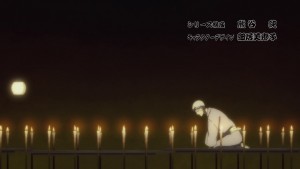 So then, here’s the thing. I really don’t want to sit down and write a long article here. But I never do with Shouwa Genroku Rakugo Shinjuu, because it’s such an eloquent and elegantly-written show that it neither requires my elaboration or is improved through it. Yet in the end I always seem to have slapped down a magnum opus (in size, anyway) because once I start, I have a hard time editing myself. I’m legitimately going to try and break the cycle this time, because you saw it – you know what you saw. But I’ll apologize in advance if when we meet each other at the end I haven’t kept my word.
So then, here’s the thing. I really don’t want to sit down and write a long article here. But I never do with Shouwa Genroku Rakugo Shinjuu, because it’s such an eloquent and elegantly-written show that it neither requires my elaboration or is improved through it. Yet in the end I always seem to have slapped down a magnum opus (in size, anyway) because once I start, I have a hard time editing myself. I’m legitimately going to try and break the cycle this time, because you saw it – you know what you saw. But I’ll apologize in advance if when we meet each other at the end I haven’t kept my word.
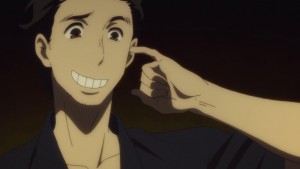 For me, it really comes down mostly to gratitude. I think that’s a good theme for this episode generally, and it’s what I very often feel as we come down to the home stretch of a truly great series. Do you ever stop and appreciate – really appreciate – how much joy you take from truly great art? I can’t even begin to comprehend how much fuller my life is because of art that’s touched me like this series has, and the debt of gratitude I owe to the creators who throw their heart and soul into bringing it into my life is incalculable. It’s so damn hard to make something this good – to write it, to adapt it, to draw it and animate it, to give it voice and set music to it. The existence of a show like Shouwa Genroku is a miracle, and I fear for any country which adopts the official position that art is frivolous and wasteful.
For me, it really comes down mostly to gratitude. I think that’s a good theme for this episode generally, and it’s what I very often feel as we come down to the home stretch of a truly great series. Do you ever stop and appreciate – really appreciate – how much joy you take from truly great art? I can’t even begin to comprehend how much fuller my life is because of art that’s touched me like this series has, and the debt of gratitude I owe to the creators who throw their heart and soul into bringing it into my life is incalculable. It’s so damn hard to make something this good – to write it, to adapt it, to draw it and animate it, to give it voice and set music to it. The existence of a show like Shouwa Genroku is a miracle, and I fear for any country which adopts the official position that art is frivolous and wasteful.
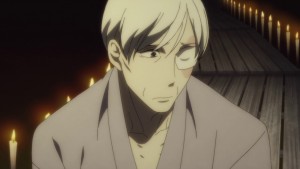 There are so many directions this episode could have taken, being as it brought to a close one of the most compelling and nuanced character arcs in anime history. I think the direction it chose was, again, gratitude. There’s been so much pain throughout these two cours, so much regret and so much worry and so much opportunity for blame. But in the end, Kikuhiko’s life was a celebration of gratitude. Miyokichi, Sukeroku, eventually even Kikuhiko himself – this wasn’t about recriminations for any of them. It was about appreciation – appreciation for what a gift life is, and for what they’d meant to each other.
There are so many directions this episode could have taken, being as it brought to a close one of the most compelling and nuanced character arcs in anime history. I think the direction it chose was, again, gratitude. There’s been so much pain throughout these two cours, so much regret and so much worry and so much opportunity for blame. But in the end, Kikuhiko’s life was a celebration of gratitude. Miyokichi, Sukeroku, eventually even Kikuhiko himself – this wasn’t about recriminations for any of them. It was about appreciation – appreciation for what a gift life is, and for what they’d meant to each other.
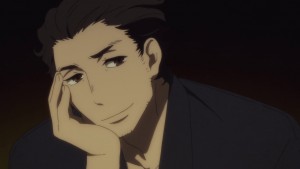 Kikuhiko is a man who did life’s heavy lifting, there’s no question about it. He bore it all on his shoulders – not without complaint, certainly, but bore it just the same. That’s why if he received a little better treatment in the afterlife than Shin and Miyokichi, it was probably right that he did. And neither of them resented him for it – they knew what he bore on their behalf, both in life and after they’d left him behind. Ultimately he took responsibility for the things they never did – for rakugo, and for their daughter – and carried them on his back for a long and difficult life. Even if Bon never truly knew the way others looked at him, the rest of the world knew what a strong and sorrowful man he truly was. And they loved him for it, just as Shin and Miyokichi did. Hell, even the Shinigami who possessed Shin was a fan of Yakumo’s rakugo…
Kikuhiko is a man who did life’s heavy lifting, there’s no question about it. He bore it all on his shoulders – not without complaint, certainly, but bore it just the same. That’s why if he received a little better treatment in the afterlife than Shin and Miyokichi, it was probably right that he did. And neither of them resented him for it – they knew what he bore on their behalf, both in life and after they’d left him behind. Ultimately he took responsibility for the things they never did – for rakugo, and for their daughter – and carried them on his back for a long and difficult life. Even if Bon never truly knew the way others looked at him, the rest of the world knew what a strong and sorrowful man he truly was. And they loved him for it, just as Shin and Miyokichi did. Hell, even the Shinigami who possessed Shin was a fan of Yakumo’s rakugo…
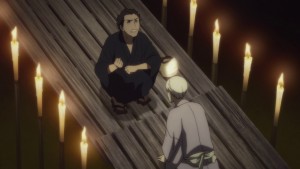 As Bon himself said, “We’re all wrong”. Ultimately, we can choose to focus on the wrongs we’ve done, or we can accept them as a part of our frailty as human beings. I don’t know if there’s any sort of opportunity to take stock once our lives have ended – it would be awfully nice if there was, but that just makes it that much more urgent that we take the chances we have in life to forgive and be grateful, rather than blame and be resentful. Yakumo blamed himself, certainly, but I don’t think he blamed others for his heartbreak – and I don’t they they (even Konatsu) blamed him. And it was, I think, knowing that Konatsu didn’t blame him that finally allowed Yakumo to forgive himself and ultimately, to let go.
As Bon himself said, “We’re all wrong”. Ultimately, we can choose to focus on the wrongs we’ve done, or we can accept them as a part of our frailty as human beings. I don’t know if there’s any sort of opportunity to take stock once our lives have ended – it would be awfully nice if there was, but that just makes it that much more urgent that we take the chances we have in life to forgive and be grateful, rather than blame and be resentful. Yakumo blamed himself, certainly, but I don’t think he blamed others for his heartbreak – and I don’t they they (even Konatsu) blamed him. And it was, I think, knowing that Konatsu didn’t blame him that finally allowed Yakumo to forgive himself and ultimately, to let go.
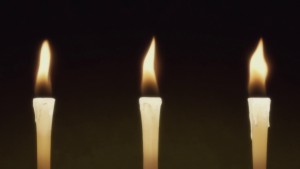 As with so much of Shouwa Genroku, this way station on the banks of the Sanzu River was a captivating and beautiful creation by Hatakeyama-sensei. It was a journey through the seasons of Kikuhiko’s life – from old and frail to young and light, to the height of his powers and back to elderly again. Miyokichi and Sukeroku were, of course, never old – maybe Sukroku could pretend to be an old man, but he’d have no way of knowing what that man would be like. It was such a joy spending time with Yamadera Kouichi again, to be reminded that he was every bit Ishida Akira’s match as his eternal foil. And as for Miyokichi, the irony is that she seemed happier in death than she ever had in life, even stuck in purgatory. And Hayashibara Megumi communicated that beautifully, as always – Miyokichi’s frailty hidden under her veneer of strength.
As with so much of Shouwa Genroku, this way station on the banks of the Sanzu River was a captivating and beautiful creation by Hatakeyama-sensei. It was a journey through the seasons of Kikuhiko’s life – from old and frail to young and light, to the height of his powers and back to elderly again. Miyokichi and Sukeroku were, of course, never old – maybe Sukroku could pretend to be an old man, but he’d have no way of knowing what that man would be like. It was such a joy spending time with Yamadera Kouichi again, to be reminded that he was every bit Ishida Akira’s match as his eternal foil. And as for Miyokichi, the irony is that she seemed happier in death than she ever had in life, even stuck in purgatory. And Hayashibara Megumi communicated that beautifully, as always – Miyokichi’s frailty hidden under her veneer of strength.
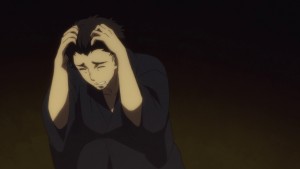 It only seems fitting that the old theater came to the afterlife when it “died” – and it was certainly a boon for us, as it gave us one last chance to see both Sukeroku and Yakumo perform. And not only us – each performer had one special guest, the one person they most wished could see them perform. It’s hardly a surprise that with Sukeroku it was Konatsu (who else would it have been, really), though in her case it seemed as if she was there for Miyokichi as much as for her father. Konatsu certainly bears deep regrets where Konatsu is concerned, and she should. Sukeroku’s performance was the essence of the man – grand, expansive, irreverent, the tale of a man who dines grandly through the kindness of others.
It only seems fitting that the old theater came to the afterlife when it “died” – and it was certainly a boon for us, as it gave us one last chance to see both Sukeroku and Yakumo perform. And not only us – each performer had one special guest, the one person they most wished could see them perform. It’s hardly a surprise that with Sukeroku it was Konatsu (who else would it have been, really), though in her case it seemed as if she was there for Miyokichi as much as for her father. Konatsu certainly bears deep regrets where Konatsu is concerned, and she should. Sukeroku’s performance was the essence of the man – grand, expansive, irreverent, the tale of a man who dines grandly through the kindness of others.
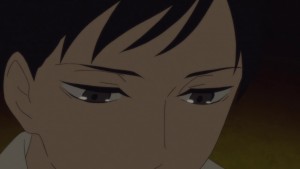 What really impacted me, though, was seeing Shinnosuke appear for Bon’s performance – that was when the waterworks really began. This moment was perfect, because it was Yakumo closing one last loop of his life – giving the grandson he loved the chance to see him perform “Jugemu” at long last (and even throwing in a nod to Shinnosuke’s father). It was the perfect vehicle for Yakumo to say his final farewells to rakugo, with its most joyous and light-hearted of farces. A child’s rakugo performed by an old man for the love of a child. This, for me, was Yakumo’s benediction to rakugo – his admission that it was fine for it to go on without him. The young always replace the old, no matter how many seasons and how many lives pass.
What really impacted me, though, was seeing Shinnosuke appear for Bon’s performance – that was when the waterworks really began. This moment was perfect, because it was Yakumo closing one last loop of his life – giving the grandson he loved the chance to see him perform “Jugemu” at long last (and even throwing in a nod to Shinnosuke’s father). It was the perfect vehicle for Yakumo to say his final farewells to rakugo, with its most joyous and light-hearted of farces. A child’s rakugo performed by an old man for the love of a child. This, for me, was Yakumo’s benediction to rakugo – his admission that it was fine for it to go on without him. The young always replace the old, no matter how many seasons and how many lives pass.
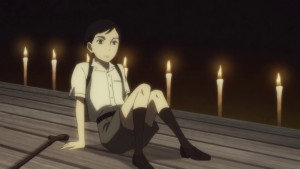 That it should be Matsuda-san who ferried Yakumo across the Sanzu was equally fitting. In effect these two were closer than most married couples, eternal companions in life – who else could “drive” his master to his final destination but Matsuda? We hear often of of cases where spouses pass away soon after their partner, their will to live on simply outstripped by their reluctance to do so alone. What awaits them on the far banks is a mystery both to us and to them, but when Bon promises Shin that they’ll meet again I think he truly believes it in his heart. He lived a full life, he loved and was loved – he paid his fare many times over. It was Bon’s time, plain and simple, but Shin will surely join him soon.
That it should be Matsuda-san who ferried Yakumo across the Sanzu was equally fitting. In effect these two were closer than most married couples, eternal companions in life – who else could “drive” his master to his final destination but Matsuda? We hear often of of cases where spouses pass away soon after their partner, their will to live on simply outstripped by their reluctance to do so alone. What awaits them on the far banks is a mystery both to us and to them, but when Bon promises Shin that they’ll meet again I think he truly believes it in his heart. He lived a full life, he loved and was loved – he paid his fare many times over. It was Bon’s time, plain and simple, but Shin will surely join him soon.
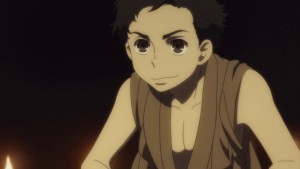 Now, we prepare to say our own farewells to this series. One last time, to see how the living cope with their loss and move on, both how they remember and how they forget. It appears that we have one more time skip coming our way, a chance to see Shinnosuke and his sister as young adults. After the events of this episode it might seem as if we’re in for an anti-climax, but all great stories should end with reflection rather than with tumult, in my view. We need the time to take it all in, just as the characters do. And I’ve spent for too much of yours, yet again – but I won’t apologize for that, as I did that already. And it’s far better for me to be grateful for this wonderful series than regret my own inability to do it justice.
Now, we prepare to say our own farewells to this series. One last time, to see how the living cope with their loss and move on, both how they remember and how they forget. It appears that we have one more time skip coming our way, a chance to see Shinnosuke and his sister as young adults. After the events of this episode it might seem as if we’re in for an anti-climax, but all great stories should end with reflection rather than with tumult, in my view. We need the time to take it all in, just as the characters do. And I’ve spent for too much of yours, yet again – but I won’t apologize for that, as I did that already. And it’s far better for me to be grateful for this wonderful series than regret my own inability to do it justice.


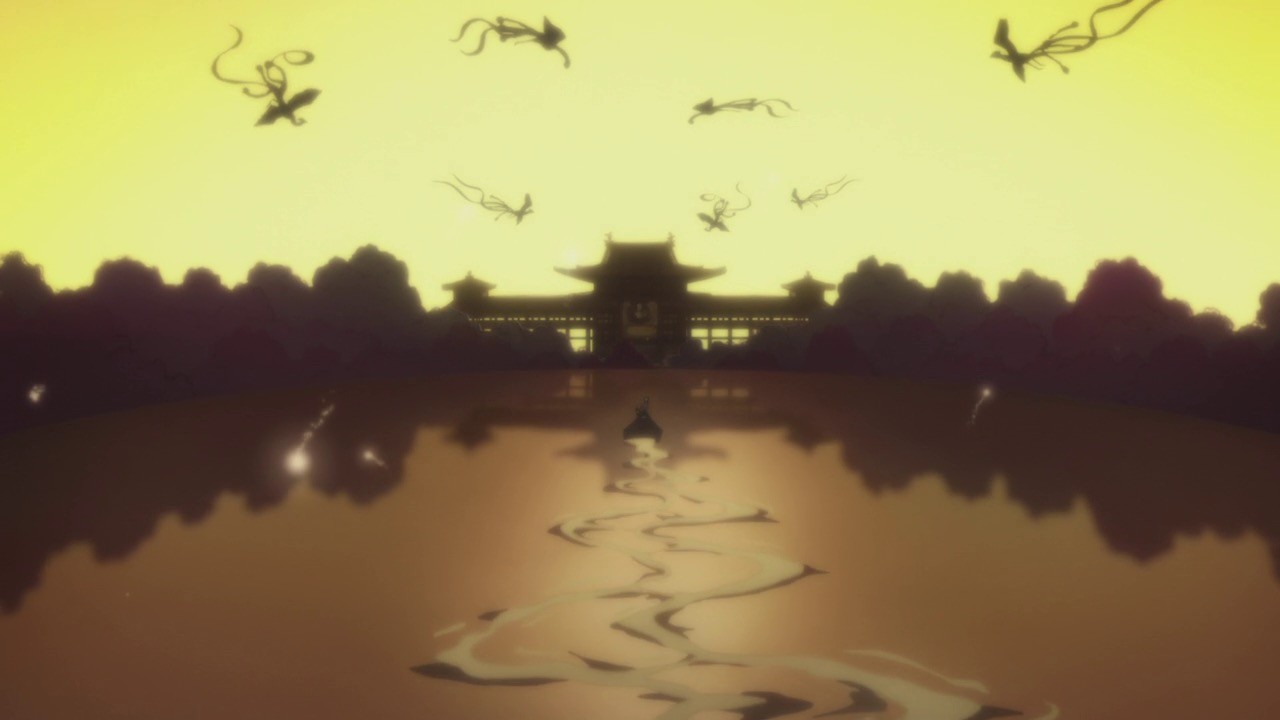
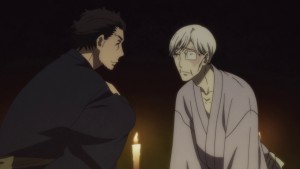
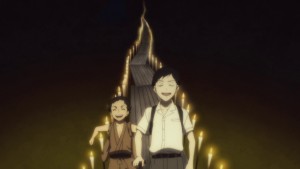
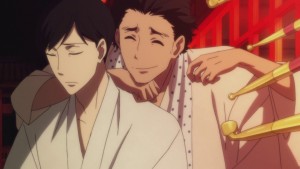
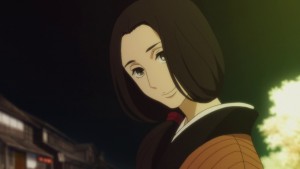
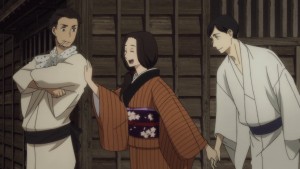
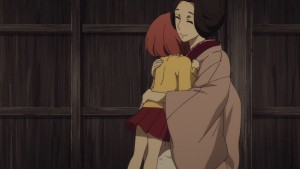
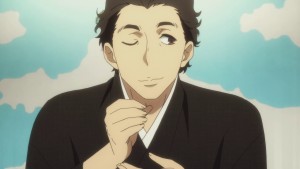
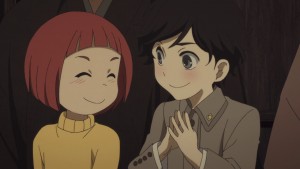
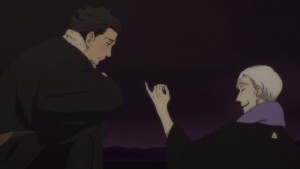
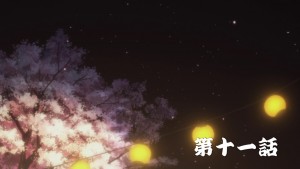
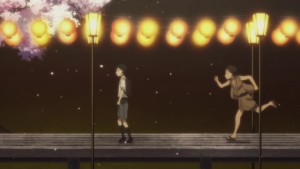
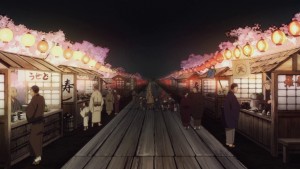
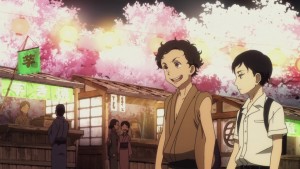
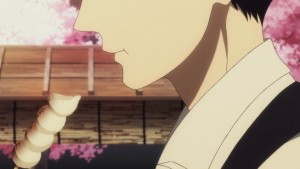
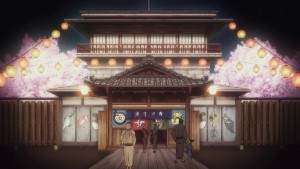
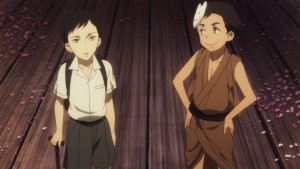
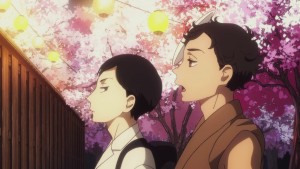
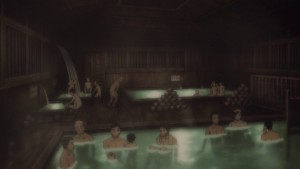
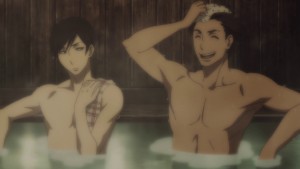
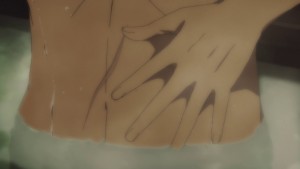
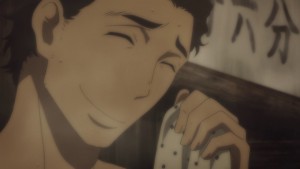
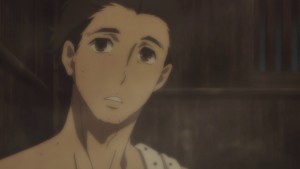
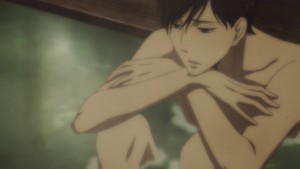

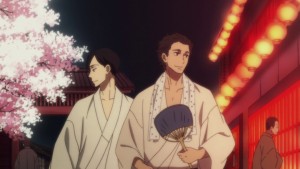
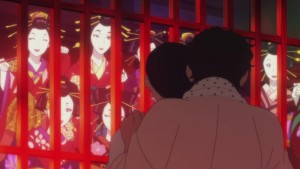
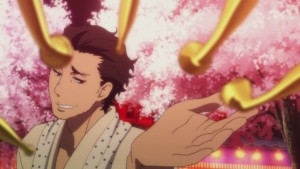
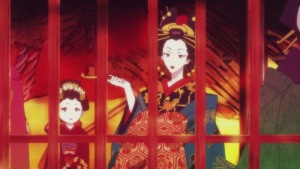
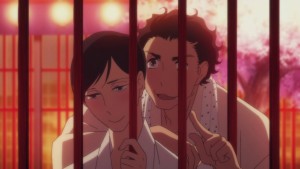
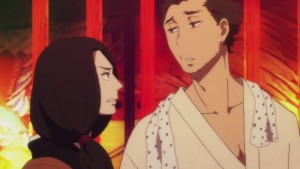
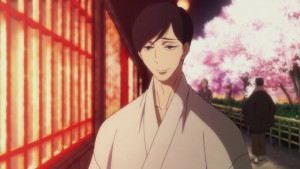
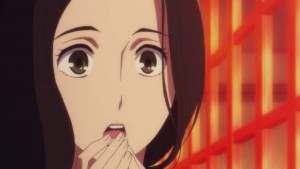
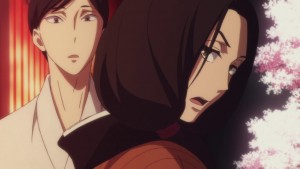
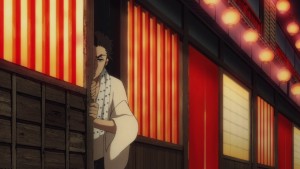
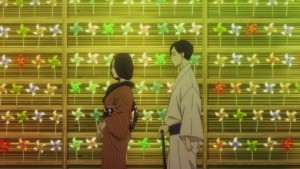
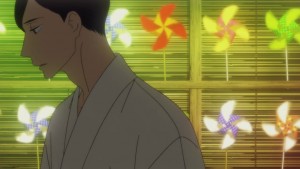
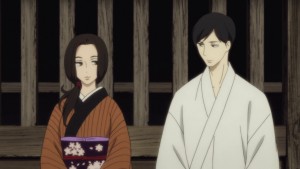
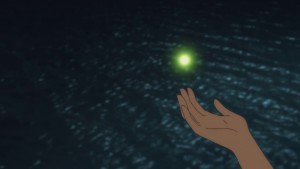
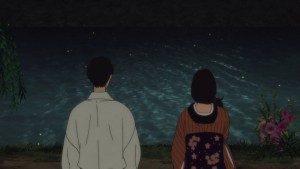
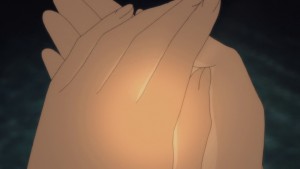
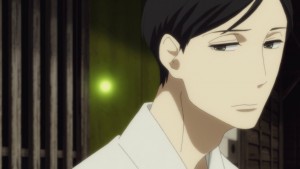
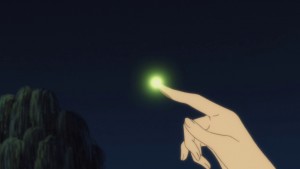
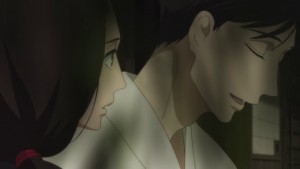
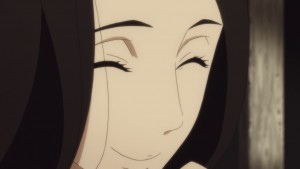
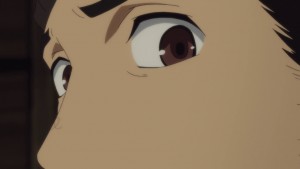
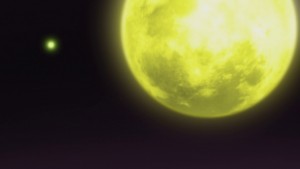
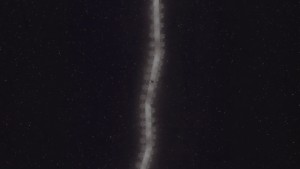
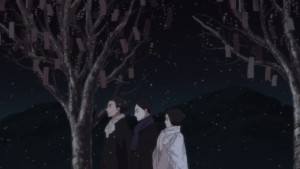
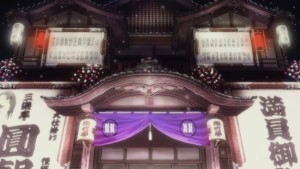
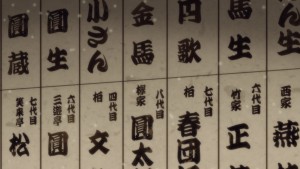
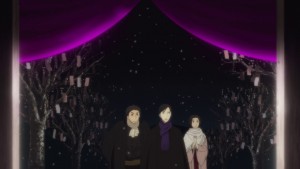
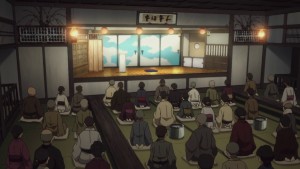
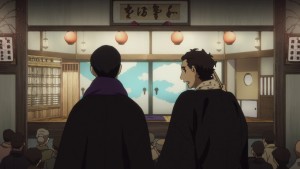
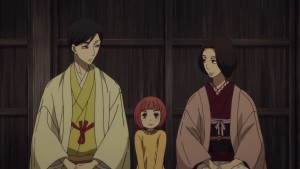
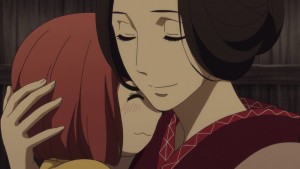
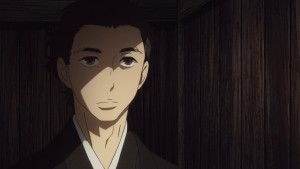
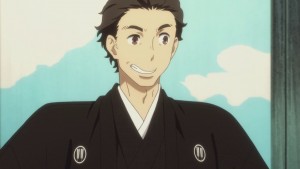
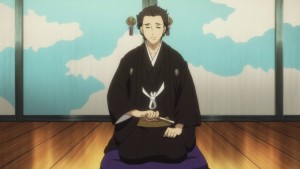
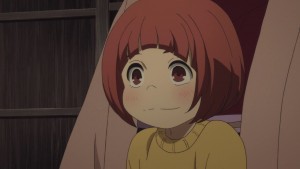
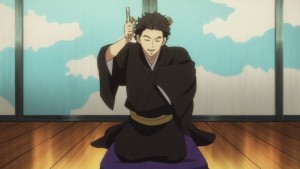
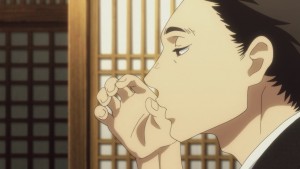
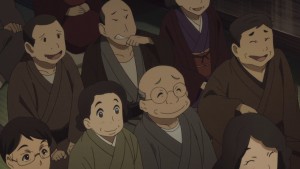
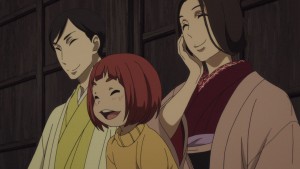
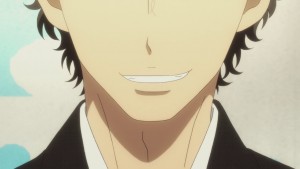


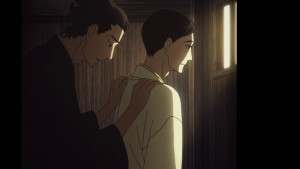
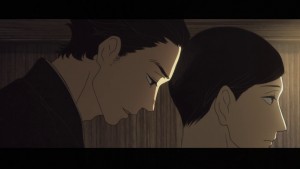
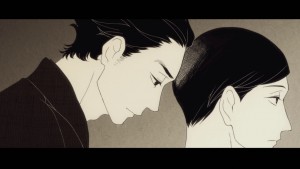
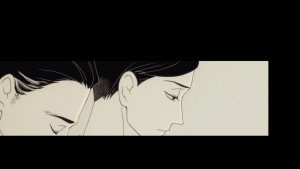
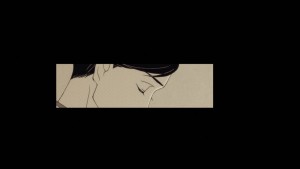
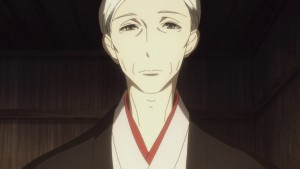
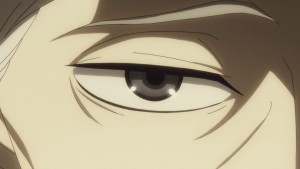
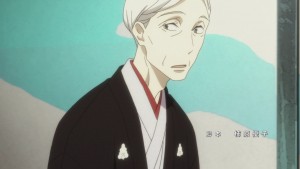
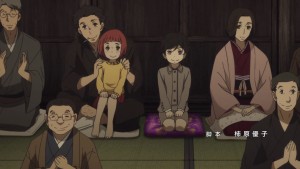

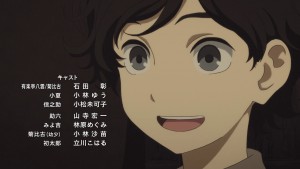
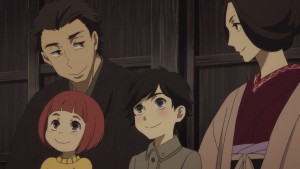
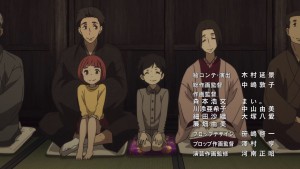
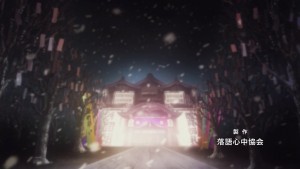
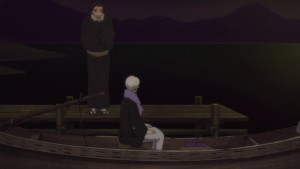
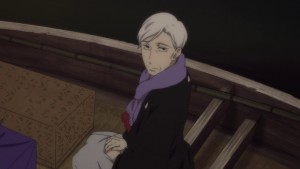
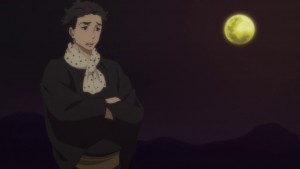
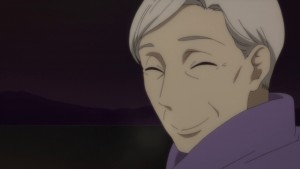
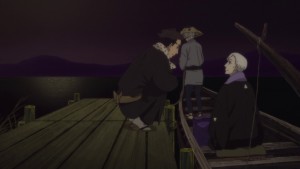
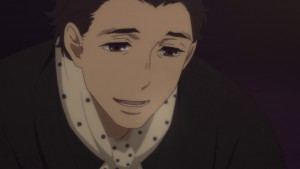
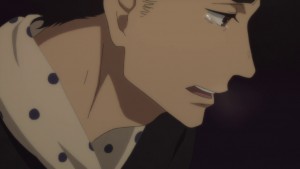
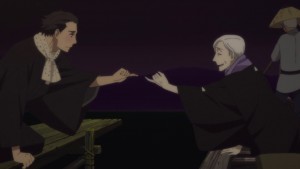
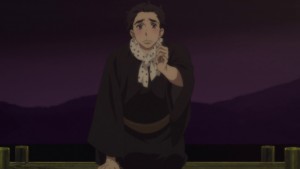
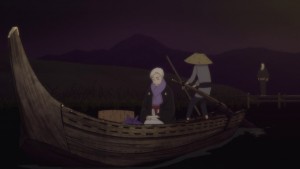
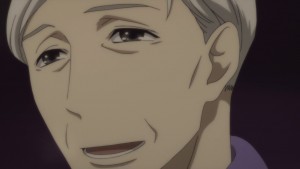
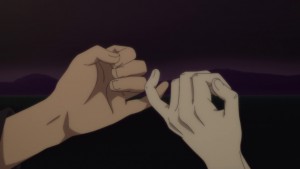
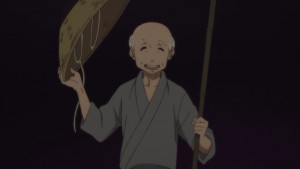
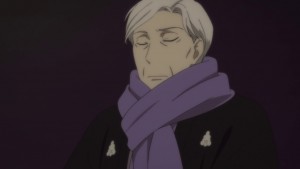

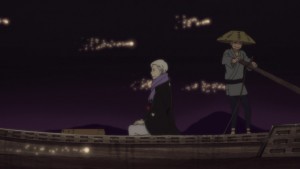
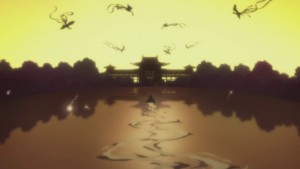
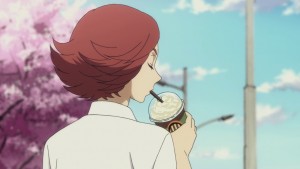
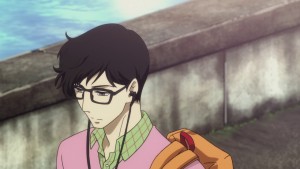
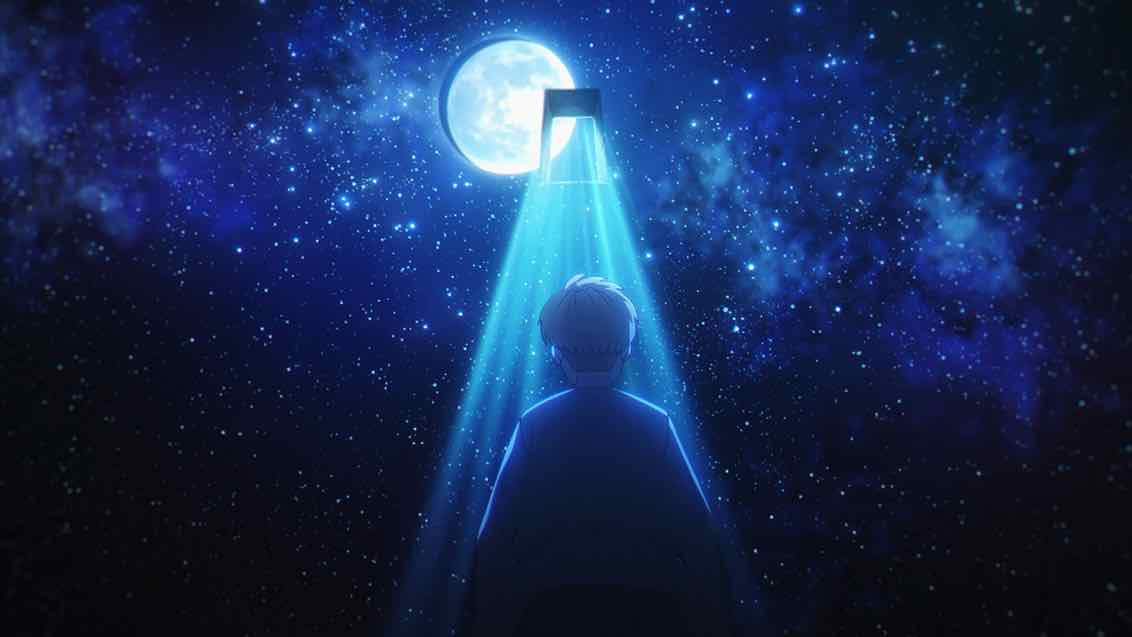
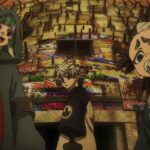
DP
March 17, 2017 at 11:39 pmBeautifully directed and beautifully acted, for sure. But I’m going to have to respectfully disagree that this episode, or indeed, this series, is “eloquent and elegantly written.”
Episode 11 is pretty much the culmination of everything that has bothered me about this series. Besides being soapy and melodramatic, it was just plain lazy. Great works of art make you feel something – well, something other than disgust – but my Lord what a shallow cop-out to have everyone meet up in the afterlife and just let bygones be bygones.
I realize I’m probably largely alone in feeling this way, and I’m truly glad that so many people love this show, as it’s terrific to see a “prestige” work succeed. But I just needed to get it off my chest that, at least speaking for myself, I’ve found the whole series to be pretty flaccid, and this latest episode to be an abominable insult of low-effort writing.
Ali
March 18, 2017 at 1:07 amI was able to hold it together until Matsuda-san showed up :,(
HoTaRu
March 18, 2017 at 1:10 amI think that I mostly felt relieved by this episode. I wasn’t sure until I watched it if there would be a reunion fitting enough for the trio that made the first season so captivating. What I found really lovely about it all was that now that they are separated from the burdens of life they have that chance to look back upon their time on earth and reflect. It was touching that there were no hard feelings about past events, just an overwhelming sense of gratitude and love. It was best displayed by Miyokichi who certainly would have been the one to hold the deepest grudge and yet she brushes off Kikuhiko’s apology quite happily. And it was heartwarming to see her embrace Konatsu so happily near the end. I was already tearing up at that point, but what really set me off was Kikuhiko and Sukeroku making a pinky promise to see each other again. Truly the perfect way for them to part IMO. There were just so many little moments adding up to make this episode as special as it was. I couldn’t hope to have seen it done any better than this.
Yukie
March 18, 2017 at 2:49 amThis season of Rakugo Shinjuu has on all levels been so astounding to me that each week I start each episode with as much trepidation as anticipation. This week’s episode especially I was worried about whether the fantastical elements or Yakumo’s death would completely ruin the series for me. I’d really hate it if such an excellent series ended on a bad note. However, this penultimate series really delivered and delivered more than I expected. What a way to sum up all of the themes of this show: regrets, forgiveness (especially self-forgiveness), family, bonds, reunions, and goodbyes. And all wrapped up in a myth-like, underworld story that could’ve easily been taken from a rakugo story. I’ve teared up several times throughout the run of this second season, but the Jugemu part really had me bawling like an kid. There’s so many layers of parental love and affection (as well as aspirations) towards the young Shinnosuke shown through that moment.
A series like this really is time well-spent. And it makes me so happy to be an anime fan.
jasper
March 18, 2017 at 5:23 pmI cried more than I have at any other anime episode
Guardian Enzo
March 18, 2017 at 5:40 pmFor me it might be a tie between Moribito #26, that episode of Uchouten Kazoku, and the finale of AnoHana.
Ronbb
March 19, 2017 at 7:27 pmShouwa Genroku is truly an exquisite series. Season 1 took the top spot of my favourites last year — it looks like season 2 can become anime of the year again, with Uchouten capable of rivalling.
romy
March 20, 2017 at 12:49 amShowa Genroku touched me to the core……….i feel so weak after each episode…….this one was definitely so beautiful, a hope for life, that even if it’s difficult and you have to bear alot, Bon received so many things……
Christine
March 24, 2017 at 4:53 pmI pretty much lost all composure when Matsuda-san appeared (and then laughed with gross tears at Yakumo giving up on trying to understand this whole after-life thing). It’s nice that we’ll get the chance to see Shinnosuke and his sister in the future (I wonder what her parents named her), but I get the impression that we’ll never get to see how That Scene unfolded from start to finish. From the sounds of Sukeroku’s description of marrid life with Miyokichi, the stabbing may have been an accident (and also a failed double suicide between Kiku and Miyokichi?). I’m a bit sad that we might never know, but this episode made a wonderful point of showing that the past is the past, and all we can do is look to the future.